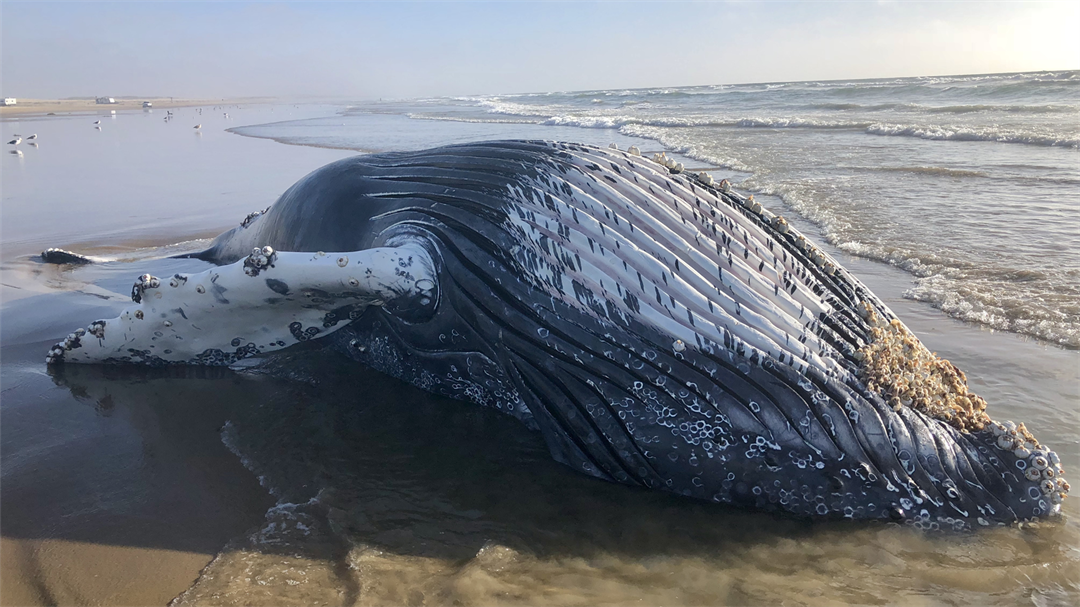California state parks buried the carcass of a young humpback whale after it washed up in Oceano.
Park rangers said handling washed up sea life is different for every animal, but because whales are so big, it is easier to bury them close. In this case, 20 feet underneath the Oceano sand dunes.
They add a beached animal would only be removed from the beach for additional research.
The carcass was buried to avoid unwanted predators and to minimize any hazards posed to the many campers and riders in the area.
Michelle Berman is one of the marine biologists studying samples taken from the young humpback whale and said many factors could have caused it to die.
"Natural death is one, most of our mortality is associated with bio-toxins, so the algae that blooms and produces a toxin, and there’s always human factors," said Berman.
However, time and nature of a whale prevented them from figuring out the cause of death.
"Because they have so much blubber, they insulate very well and so their tissues degrade very rapidly so it’s hard to get good sampling from them," added Berman.
Instead, they are testing for contaminants, genetics and different health parameters to track the trends in our population.
Marine biologists say it’s more beneficial for the environment to let the carcass naturally decay rather than remove it.
But people in the area are posting to social media saying a strong, unwanted smell lingers.
"They say it smells like death, like a fishy death," said Guy Bowers, an Oceano camper.
Berman adds there are no abnormalities with level of contaminants or number of dead sea life so far.
According to CA State Parks, there shouldn’t be a strong odor, but smells could pick up once the whale carcass starts to decay.
(Photo Courtesy: Richard Beaulieu)
(Photo Courtesy: Richard Beaulieu)
(Photo Courtesy: CA State Parks)

